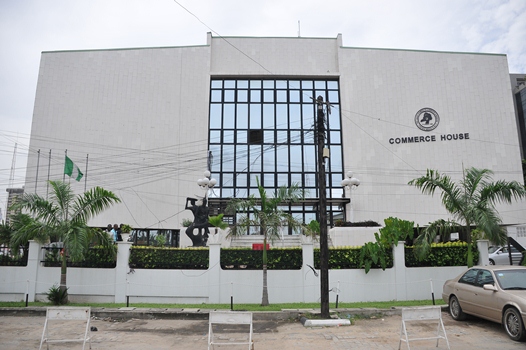The Lagos Chamber of Commerce & Industry (LCCI) has said that a significant fraction of businesses, precisely 81%, have been ‘severely’ affected by the COVID-19 lockdown in Lagos with 17 per cent indicating moderate impact on their business. The report is as a result of its survey finding. In the report it said “Additionally, the lockdown had severe impact on over 50 per cent of businesses in the services sector. The profound impact on services sector is as result of lower demand for services by individual and corporate clients.
“During the lockdown, clients prioritised food and essential items ahead of ‘relatively less important’ services, and corporate clients ran skeletal operations, which depressed demand for {non-essential} services. According to the survey “Majority of the respondents (64%), loss of N500, 000 and below daily during the lockdown while 16% indicated a loss of between N 1million – N2million. About 20% of businesses indicated a loss of N2 million and above daily day during the lockdown. A conservative assumption that sampled business operators lost an average N500, 000 each day during the lockdown suggests that each operator lost N17.5 million within the five-week lockdown (March 31-May 3, 2020). This modest estimation indicates that about N2.7 billion was lost in revenue by sampled businesses (n=153) to the lockdown. This translates to trillions of naira losses for thousands of businesses operating in Lagos
The survey report further said “Our findings showed that selected business operators are weighing different cost-cutting strategies to help minimise losses and stay afloat in the post-pandemic era. Majority of the respondents (63%), plans to downsize operations to minimise losses. This is unsurprising as businesses have not generated income over a 5 weeks period and have lost trillions of Naira in profit due to lockdown. This suggests that unemployment rate is expected to increase drastically post-lockdown except government takes urgent steps to support business owners towards surviving and ensuring business continuity.Most of the respondents (46%) intend to slash salary and reduce workforce as a joint measure, 24% plan to cut personnel cost only. Thirteen percent intends to trim staff strength only while 17% are proposed no salary payment. Cost-cutting strategies particularly downsizing has implications for the economy from unemployment and productivity perspectives. First, it will exacerbate the already-high level of unemployment as more and more workers risk impending job losses. This may see unemployment rate surge to 40%- 45% by end-2020 from 23.1% as at Q3-2018. Additionally, the potential risk of huge job losses will aggravate the magnitude of stagflation (high unemployment + high inflation + low growth) in the economy. This has ripple effect on the Gross Domestic Product (GDP) given that private consumption by households accounts for about 60% of national output.
“Asked about needed palliatives, business operators indicated they would want to see government support their respective businesses. Most of the respondents (41%) requested reduction in interest on loans; 29% want tax waivers; 17% want import/demurrage waivers and 13% indicated extension on loan repayment.Some of the palliatives requested by sampled businesses have already been provided for by recent actions of the Central Bank of Nigeria and Federal Government. The CBN did announce reduction in interest rate on all its facilities and gave a 12-month moratorium. The Federal Government equally gave three months extension on its loans and social welfare schemes. However, this finding shows that buisnesses would need reprieve from both commercial banks as well government agencies that collects one form of tax or levies from buisnesses. It is critical for financial institutions to offer reprieve to their corporate customers through loan restructuring, either by cutting lending rates or extending repayment period. Government on its part would also need to do more to help keep many businesses afloat going forward”.
LCCI said that from it findings “The consensus deduced from the discussions and recommendations for actions are as follows: holistic but negotiated response; a national plan of action coordinated collaboratively is critical and urgent; public and private sector must make concerted efforts to protect businesses, jobs and income; it is imperative to fine tune HR policy and strategy with a view to reorganise work and make production adapt to the new reality; joint actions to sustain output and commitment to cooperate and protect the market from significant damages are needed; government should redesign or develop national policy to protect jobs and income. This must be done in collaboration with private sector operator and that it substitute debts with equity”.
Continuing it said “Valuation of national assets and make strong attempt to attract equity into assets to boost foreign exchange liquidity; this will eliminate intractable burden of debt services and avail government more resources to build infrastructure and provide necessary public goods; implement reforms to enhance governance capacity and leverage private sector expertise and experience for efficiency in allocating resources; a year tax break for healthcare & pharmaceutical companies, airlines, manufacturers, agro-processors, SMEs and hospitality players; suspension of the implementation of the new VAT regime rate till year end and solution focused coordinated advocacy; private sector should develop a platform to harmonise initiatives and actions and that the platform should support the government, in policy design, implementation, and evaluation of effectiveness of responses”.

